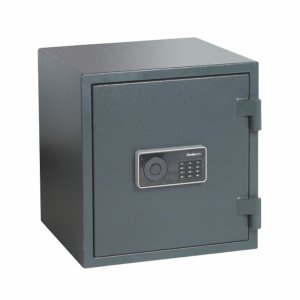What Level Of Security Should I Look For In A Safe?
If you decide that you need a safe in your home or business, then there is usually a good reason for that. It is stressful enough coming to this decision, because you clearly feel there is a risk or a threat of burglary or fire, but it is even more stressful if you then make the wrong decision and find that you don’t have a sufficient security level in the safe you have chosen.
So how do you go about choosing the right level of security for your safe? In this guide we will look at the factors you need to consider and help you establish a criteria which will assist in making this crucial decision.
What do you plan to store in your safe?
This is perhaps the most important factor in determining the level of security you need for your safe. If you are using a safe to keep paper documents or digital media secure, then you really need a safe to be fireproof rather than have a high level of security. This is because these items are only really valuable to you or your business, they do not hold a high value for an opportunist thief. But of course you want to protect them so a fireproof safe with a standard level of security is the most important consideration. However, if you are storing items of high monetary value then security becomes a much bigger factor.
If you establish what value the items you wish to store in the safe hold, this will help you determine the level of security required. You will also need to consider the potential risk in the area. This is not just the location of your premises or home, but how easy it is to gain access to the safe within the building. Do you have good internal security or an alarm system? A home or business can be in a safe, popular, high class area, but if there is no internal security then the safe is still vulnerable.
What are your insurance requirements?
While you can make a number of practical considerations when deciding what level of security you need for your safe, this decision may well be taken out of your hands by your insurance company. If you plan to store a high value of cash, or if you have items of specific value to store – such as valuable jewellery, artwork or business information and specifications – then your insurance company may make specific demands relating to the level of security you employ.
With a business, insurance companies are trying to ensure business continuity, so they need to make sure that valuable information or items that protect the market position of the business and may damage its ability to trade, are kept safe. In a domestic property it is a little bit more straightforward, and you really want a safe that offers the security levels commensurate with the value of what you are storing in it. This way, the insurance company can see you have taken sufficient precautions to guard against theft and will therefore be confident to cover the value of what you are storing.
What are insurance ratings?
Insurance ratings are a way for insurance companies to grade different levels of safe security, with a view to helping you select the right one for your needs. In simple terms, an insurance rating denotes the maximum cash or value that can be stored in a safe overnight in order for an insurance company to cover it. The higher the rating, the more secure the safe will be. Most professional safes should carry an insurance rating.
The insurance ratings of a safe are usually categorised in four bands:
- Standard – For small cash amounts between £1000 - £3000 and to guard against opportunist burglars
- Medium – The most popular grade of safe
- High – For protection against experienced and professional burglars
- Maximum – The ultimate security and for complete peace of mind against any type of burglar
Safes of different grades will cover a value range of £1000 in the standard category, up to £250,000 in the maximum category. And the level of insurance rating is determined by:
- The resistance of the safe to being moved – ie. how easy is it to dismount or uplift out of a building
- The thickness and strength of the walls and door
- The complexity and security levels of the lock and bolt mechanisms
- The general build quality of the safe
Important considerations when choosing the security level of a safe
- You should perhaps choose a higher level of security than you currently need, firstly because it gives you more peace of mind, but also because you may add more valuable items to the safe over time, and hence the security level and insurance rating may become insufficient.
- Insurance ratings only apply if a safe is installed correctly, so make sure that you use a professional to install your safe.
- Check with your insurer that you have chosen the correct safe for the value of items you plan to store. It is possible that some items will have a higher value than you realised.